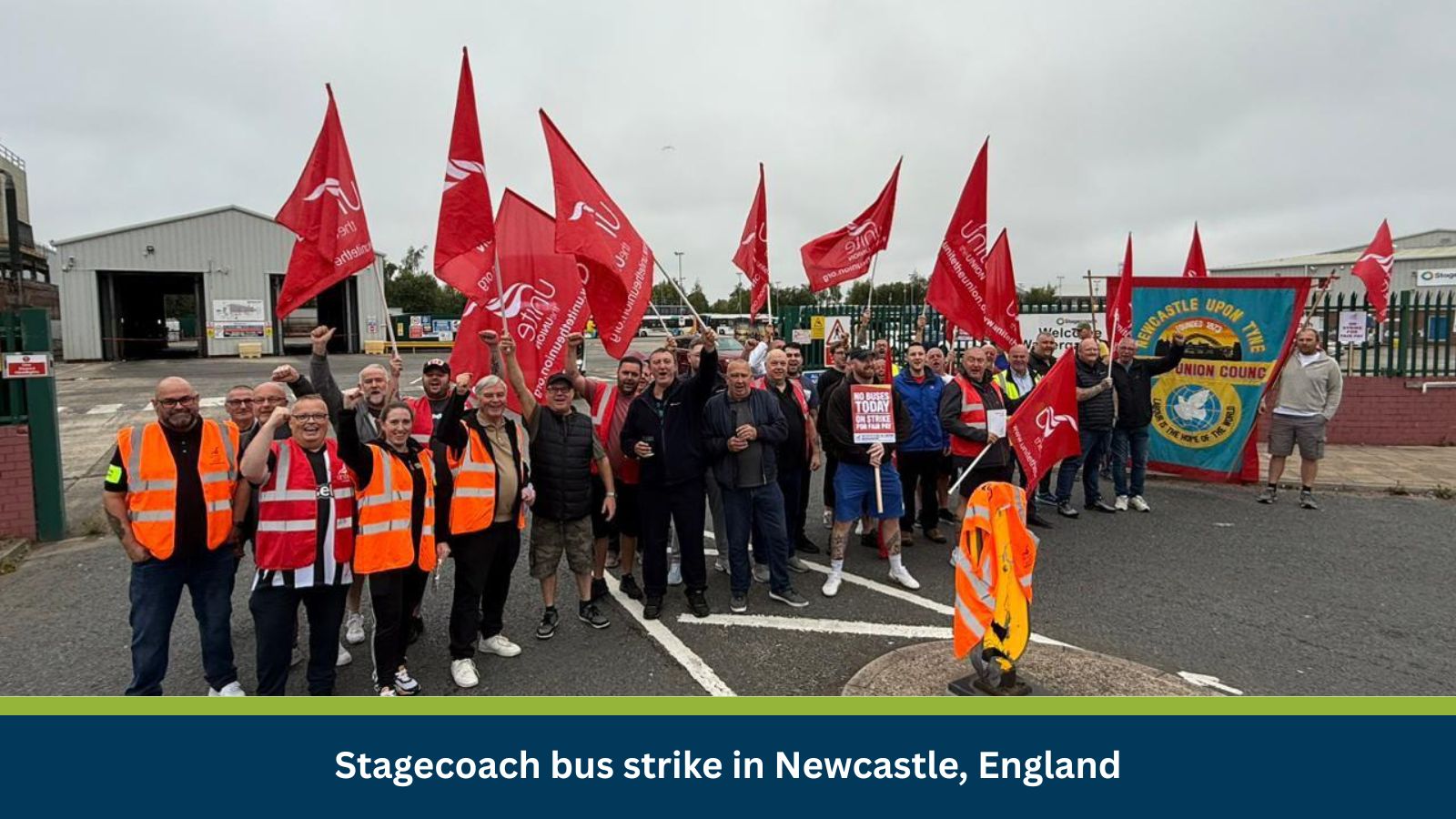What is Risk Analysis in the Context of Travel Risks?
This report assesses the risks of a significant travel disruption event in Newcastle. Public transport strikes are a recurring phenomenon in the UK, with historical data consistently showing a high potential for widespread disruption to daily life and the urban economy. This analysis helps organizations prepare for sustained operational challenges related to logistics, personnel movement, and business continuity. It is a critical tool for ensuring employee safety and operational resilience.
Executive Summary
- Date of Incident: 18 August 2025
- Location: Newcastle, England, United Kingdom
- Risk Category: Travel Risks
- Severity Score: 4/5
- Confidence Level: 85%
A significant Stagecoach bus strike has resumed in Newcastle on Monday, 18 August, signaling a renewed phase of industrial action. Based on historical analysis of similar public transport strikes, a likely duration of intense disruption is anticipated for at least 3-7 days. The severity of this event is assessed as high due to its immediate and widespread impact on urban mobility, employee commutes, and local business operations.
Known Hotspots and Sensitive Areas
Key sensitive areas include Newcastle Central Station, Eldon Square shopping centre, Royal Victoria Infirmary (RVI), Newcastle University, and Northumbria University, all of which rely heavily on public transport for staff, students, and visitors. Major business districts and retail areas within the city centre will also experience reduced accessibility.
Impact on Transportation and Services
The strike will cause major disruption to Stagecoach bus services across Newcastle. This will lead to increased reliance on alternative transport modes such as the Tyne and Wear Metro, taxis, and private vehicles, exacerbating traffic congestion on main arterial routes like the A167(M) Central Motorway and A1 Western Bypass. This will impact employee commutes and reduce customer footfall. For businesses reliant on deliveries, increased road congestion can lead to delays for local logistics.
Recommended Actions
- Immediately activate remote work protocols for all feasible roles. For essential on-site staff, offer alternative transport solutions such as subsidized taxi/ride-sharing or carpooling incentives.
- Proactively contact clients and stakeholders to inform them of potential service delivery delays. For businesses reliant on deliveries, identify critical routes and proactively arrange alternative transport solutions.
- Designate a central incident management team to monitor the strike’s progression, assess real-time impact, and disseminate regular internal updates.
- Local authorities such as Newcastle City Council and Northumbria Police can provide updates and advisories.
Emergency Contacts
- Police: For non-emergencies, call 101.
- Ambulance: For non-emergencies, use NHS 111.
- National Emergency: 999
- Government: https://www.gov.uk/
- Newcastle City Council: https://www.newcastle.gov.uk/
- Northumbria Police: https://www.northumbria.police.uk/
Final Thoughts
The baseline scenario anticipates the strike to continue for approximately one week. A moderate escalation could see the strike become intermittent or prolonged over several weeks if no resolution is reached. A severe escalation, though a low probability, could involve wider industrial unrest, leading to prolonged public transport paralysis. Businesses should prioritize employeemobility and business continuity planning to navigate this high-risk event.
Stay ahead of operational risks with real-time alerts, scenario modeling, and expert advisories with datasurfr’s Predict. Start your 14-day free trial of Datasurfr’s Risk Intelligence Platform today.






